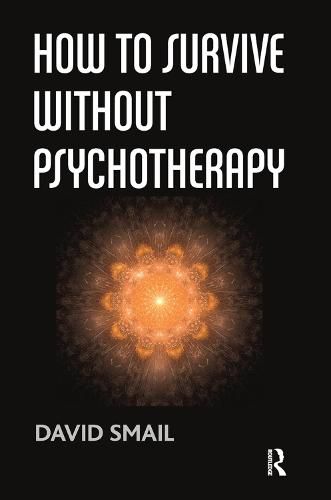Readings Newsletter
Become a Readings Member to make your shopping experience even easier.
Sign in or sign up for free!
You’re not far away from qualifying for FREE standard shipping within Australia
You’ve qualified for FREE standard shipping within Australia
The cart is loading…






This book is directly aimed at sufferers of mental distress. The book’s aim is to remove from sufferers the burden of ‘fault’ for their pain and to demystify some of the practices that surround the ‘treatment’ of mental illness. It is not exactly a self-help book because it is a false claim of any ‘treatment’ of mental illness that ‘cure’ can be brought about by exercise of will. Much of what causes mental distress is lack of power and resource, outside the control of the sufferer. Surviving without psychotherapy involves the appreciation of several things. First, the limited nature of therapeutic assistance - whilst clarification and support may help the sufferer understand his/her predicament and encourage the use of what resources the sufferer has, therapy cannot change the distal root causes of distress. Second, that only socio-political solutions can address some of the most powerful causes of distress, e.g., redundancy, housing and poverty. In sounding a cautionary note about psychoanalysis, Smail observes that mental distress is far more about money than sex.
$9.00 standard shipping within Australia
FREE standard shipping within Australia for orders over $100.00
Express & International shipping calculated at checkout
This book is directly aimed at sufferers of mental distress. The book’s aim is to remove from sufferers the burden of ‘fault’ for their pain and to demystify some of the practices that surround the ‘treatment’ of mental illness. It is not exactly a self-help book because it is a false claim of any ‘treatment’ of mental illness that ‘cure’ can be brought about by exercise of will. Much of what causes mental distress is lack of power and resource, outside the control of the sufferer. Surviving without psychotherapy involves the appreciation of several things. First, the limited nature of therapeutic assistance - whilst clarification and support may help the sufferer understand his/her predicament and encourage the use of what resources the sufferer has, therapy cannot change the distal root causes of distress. Second, that only socio-political solutions can address some of the most powerful causes of distress, e.g., redundancy, housing and poverty. In sounding a cautionary note about psychoanalysis, Smail observes that mental distress is far more about money than sex.